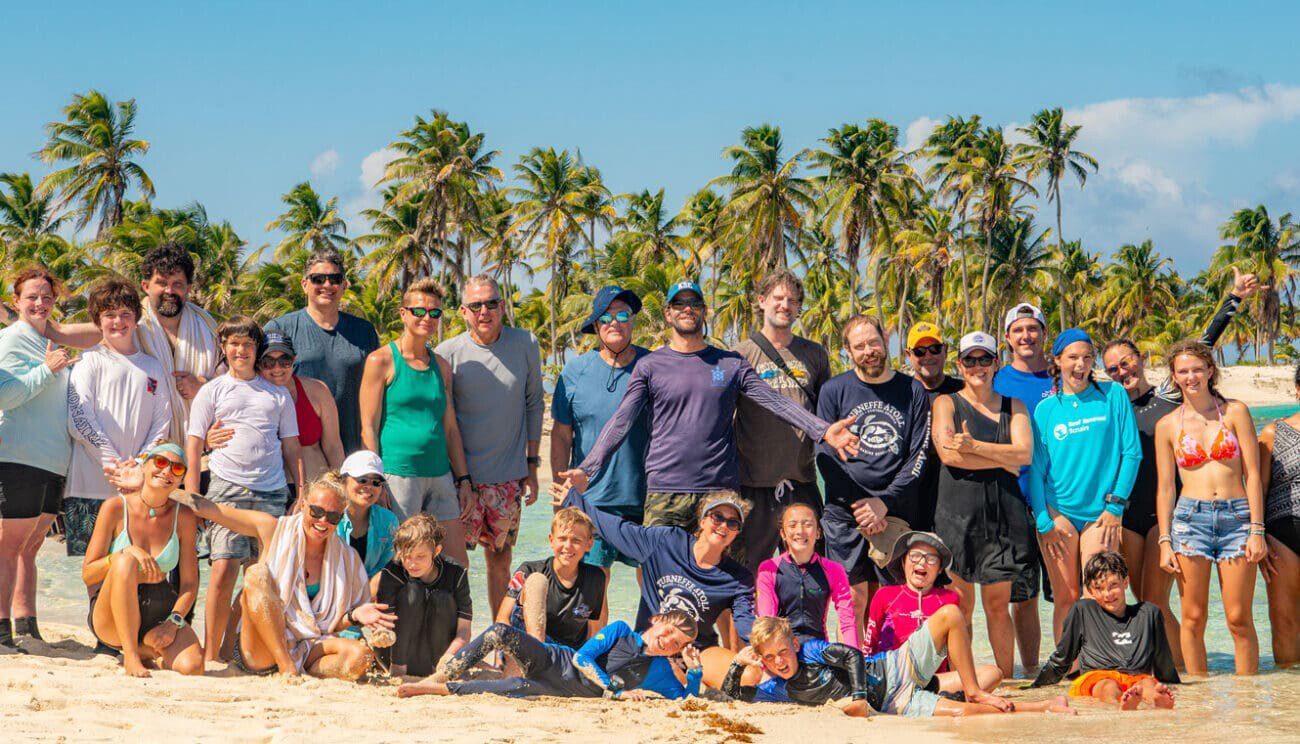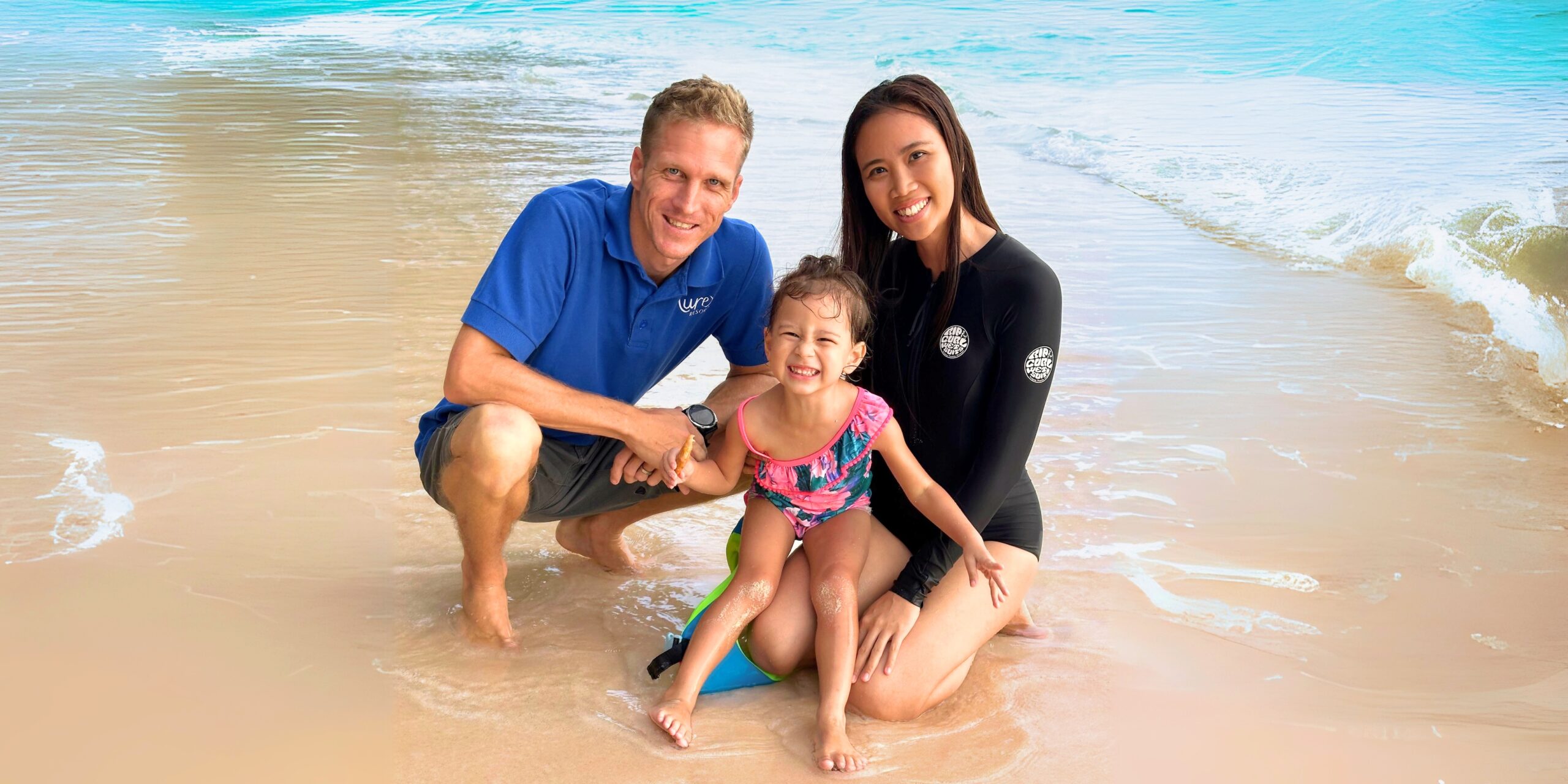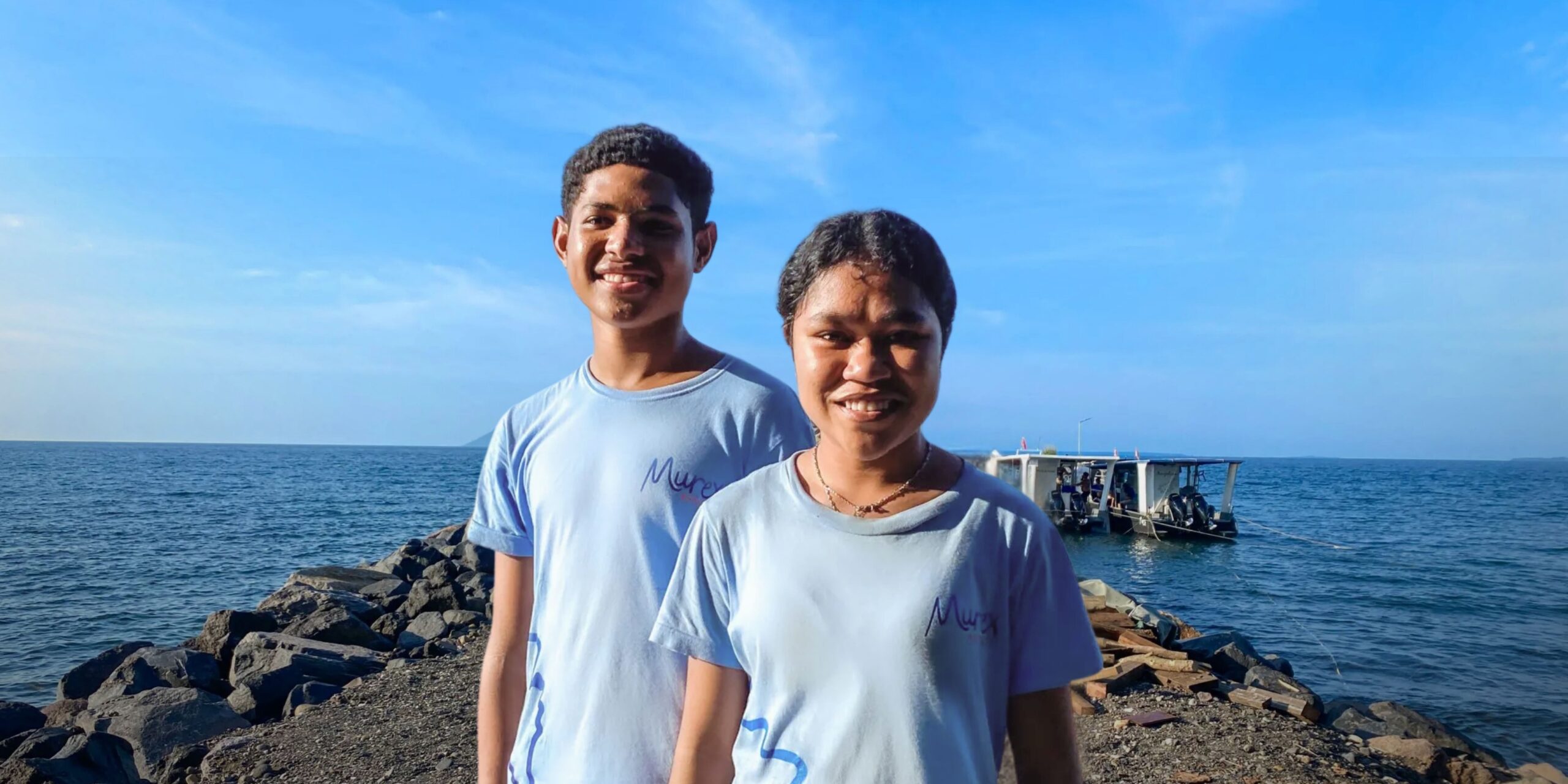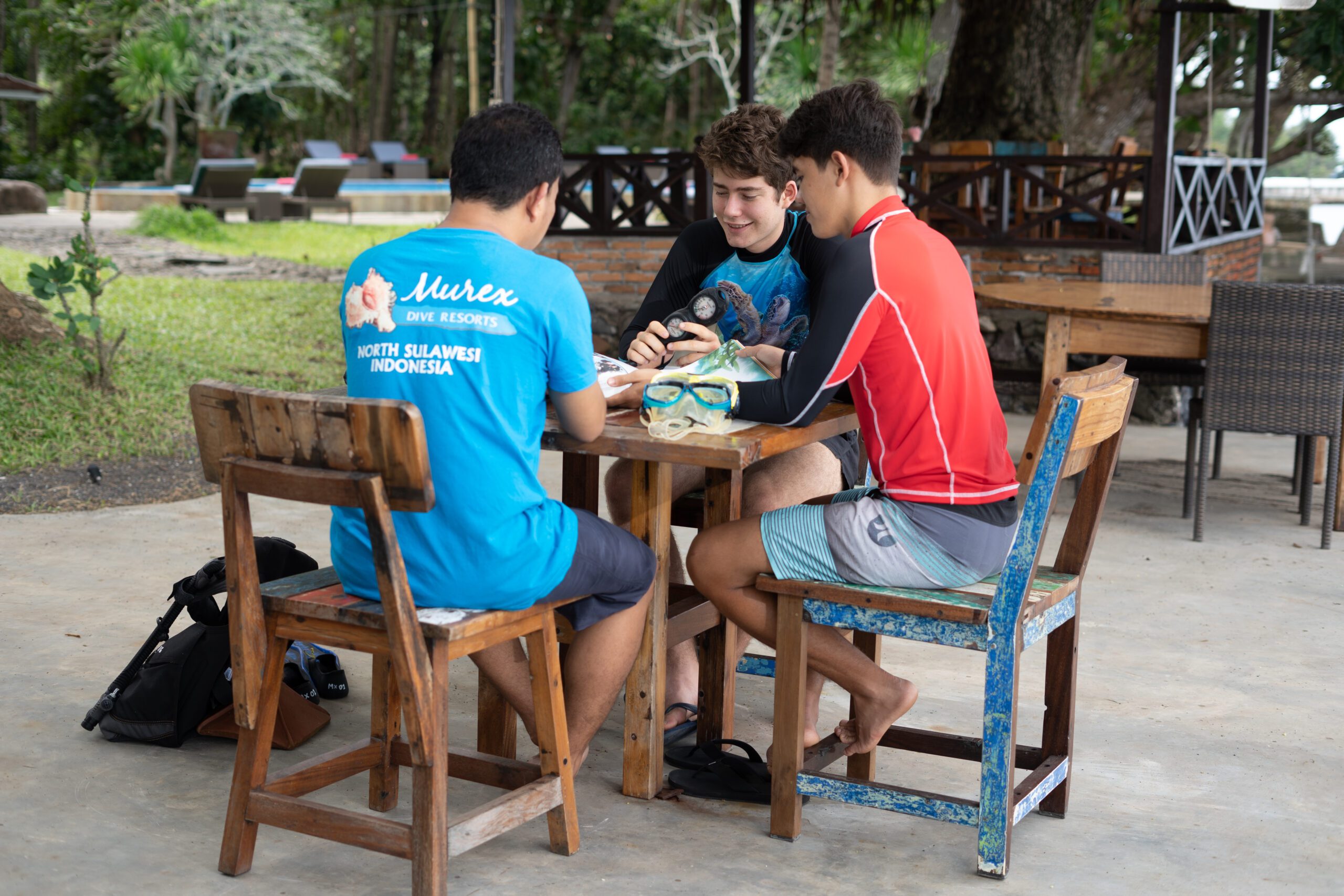
Useful Indonesian Phrases for Travelers
If you are planning overseas travel, it’s always useful to know a few key words and phrases in the local language before you leave home. In most countries, the locals appreciate it when visitors try to use local greetings and they are often more than happy to help supply some extra words to use too.
In this article, we take a look at the relatively modern language (Bahasa) of Indonesian, where it came from, and some useful phrases to know before you visit.
Languages in Indonesia
Indonesia is a vast archipelago made up of more than 17,500 islands. Historically, these islands had their own languages (often several) that were quite unique and specific to certain areas. As Indonesia began to unite and transport and trade between areas improved, it became clear that a single language spoken throughout the country would help to unite Indonesia’s diverse population and ethnic groups. Although Bahasa Indonesia (which literally means ‘Indonesian language’), is spoken throughout Indonesia, many people are bilingual and speak both Indonesian as well as their local dialect.
The most common languages spoken today in Indonesia are:
|
Bahasa Indonesia – 270 million speakers. |
Javanese – 68.2 million speakers. |
|
Sundanese – 32.4 million speakers. |
Maduranese – 7.7 million speakers. |
|
Bahasa Bugis – 4.3 million speakers. |
Minangkabau – 4.2 million speakers. |
Facts about Indonesian
- Indonesian is the official language of Indonesia.
- Indonesian utilizes a simple and phonetic writing system and borrows words from various other languages including Dutch, Arabic, Sanskrit, Portuguese, Chinese, and English.
- Indonesian began as a standardized form of Malay and although it still shares many similarities with Malay it has evolved into a distinct language with its own vocabulary, grammar, and pronunciation.
- The Indonesian alphabet, known as “Ejaan Yang Disempurnakan,” consists of 26 letters and follows a consistent pronunciation pattern, making it relatively easy to learn and read.
- In contrast to many other languages (particularly European languages), Indonesian does not differentiate nouns, pronouns, or adjectives based on gender. This feature makes it more inclusive and straightforward to use.
- Indonesian words can be modified through the addition of prefixes, suffixes, or infixes to convey different nuances of meaning, create verb forms, or to indicate past, present or future tenses.
- Indonesian follows a subject-verb-object (SVO) sentence structure, making it less complex compared to languages with more intricate grammar rules.
- Although Indonesian is the official language, variations of the language (local dialects) can be found across different regions of Indonesia.
- Similar to other Southeast Asian languages, Indonesian has different levels of politeness in speech, allowing speakers to adjust their language based on the social context and relationship with the listener.
- Due to migration and increasingly easy access to travel around South East Asia, Indonesian is spoken by communities in neighboring countries such as Malaysia, Singapore, and Brunei.
- As Indonesian interacts with other languages and cultures, new words and expressions continue to be incorporated into the language – Indonesian is still evolving to this day.
Bahasa Indonesia and English in the Tourism Industry
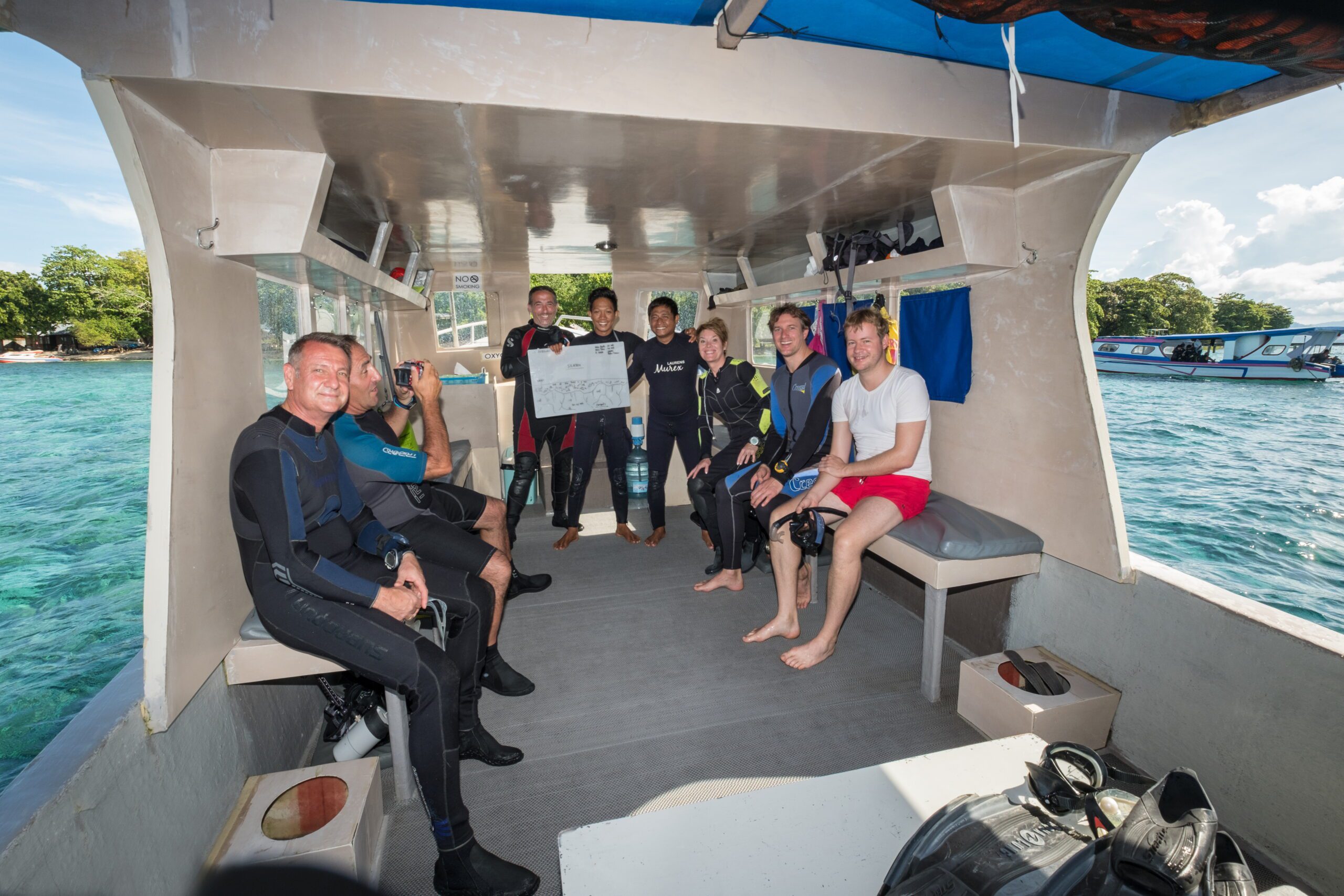
Depending on where you travel in Indonesia, you may find that the local people have varying levels of proficiency in English. Generally speaking, the more ‘off the beaten track’ you venture, the stronger the possibility of locals with extremely limited English.
That being said, when staying in hotels, in resorts, or when communicating with dive operators, English is usually spoken to some extent. As the recognized international language in travel and tourism, most staff speak English to some degree. Many operators, including Murex Resorts, provide staff with English lessons and encourage them to develop their English skills – be patient, speak slowly, and try out some of your Indonesian skills too!
Basic Indonesian Words and Phrases
In this next section, we take a look at some basic Indonesian words and phrases that you may find useful when traveling around Indonesia and trying to communicate with the locals.
Personal Pronouns
|
I – Saya |
We – Kita (inclusive), Kami (exclusive) |
|
You – Anda (formal) (Kamu – for friends and children only) |
He/she – Dia |
|
They – Mereka |
Forms of Address
When addressing Indonesians always aim to be as polite and respectful as possible. The words for Mother and Father are used in the same way as Mrs. and Mr. and should be used when addressing new people or elders – and to show respect.
|
Father or Mr. – Bapak (“Pak”) |
Mother or Mrs. – Ibu (“Bu”) |
Basic Questions
|
How? – Bagaimana? |
How much/many? – Berapa? |
|
What? – Apa? What’s this? – Apa ini? |
Who? – Siapa? Who’s that? – Siapa itu? |
|
What is your name? – Siapa namanya? |
When? – Kapan? |
|
Where? – Di mana? |
Why? – Kenapa? (or) Mengapa? |
|
Which? – Yang mana? |
Civilities
|
Welcome – Selamat datang |
Good morning (7-11am) – Selamat pagi |
|
Good midday (11am-3pm) – Selamat siang |
Good afternoon (3-7pm) – Selamat sore |
|
Good night (after dark) – Selamat malam |
Goodbye – Selamat jalan |
|
How are you? – Apa kabar? |
I am fine – Kabar baik. |
|
Thank you – Terima kasih. |
You’re welcome – Kembali. |
|
Same to you – Sama sama. |
Pardon me – Ma’af |
|
Excuse me – Permisi |
Numbers
|
1 – Satu |
20 – Dua puluh |
|
2 – Dua |
23 – Dua puluh tiga |
|
5 – Lima |
73 – Tujuh puluh tiga |
|
4 – Empat |
100 – Seratus |
|
5 – Lima |
600 – Enam ratus |
|
6 – Enam |
1,000 – Seribu |
|
7 – Tujuh |
3,000 – Tiga ribu |
|
8 – Delapan |
10,000 – Sepuluh ribu |
|
9 – Sembilan |
100,000 – Seratus ribu |
|
10 – Sepuluh |
1,000,000 – Satu juta |
|
Half – Setengah |
First – Pertama |
|
Second – Kedua |
Time
|
Minute – Menit |
Hour – Jam (also clock/watch) |
|
Day – Hari |
Week – Minggu |
|
Month – Bulan |
Year – Tahun |
|
Today – Hari ini |
Tomorrow – Besok |
|
What time is it? – Jam berapa? |
(it is) eight thirty – Jam setengah sembilan |
|
How many hours? – Berapa jam? |
When did you arrive? – Kapan datang? |
|
Four days ago. – Empat hari yang lalu. |
When are you leaving? – Kapan berangkat? |
|
In a short while – Sebentar lagi. |
Days of the Week
|
Sunday – Hari Minggu |
Monday – Hari Senin |
|
Tuesday – Hari Selasa |
Wednesday – Hari Rabu |
|
Thursday – Hari Kamis |
Friday – Hari Jum’at |
|
Saturday – Hari Sabtu |
Useful Words
|
Yes – Ya |
Not – Tidak, Bukan |
|
And – Dan |
With – Dengan |
|
For – Untuk |
From – Dari |
|
Good – Baik |
Very- Good – Bagus |
|
More – Lebih |
Less – Kurang |
|
To Be – Ada |
To buy – Membeli |
|
To know – Tahu |
Big – Besar |
|
To need – Perlu |
To go – Pergi |
|
Slow – Pelan |
To wait – Tunggu |
|
To – Ke |
Tld – Tua, lama |
|
Full – Penuh |
Quiet – Sepi |
|
Few – Sedikit |
Cold – Dingin |
|
Clean – Bersih |
Entrance – Masuk |
|
Better – Lebih baik |
Worse – Kurang baik |
|
This/These – Ini |
That/Those – Itu |
|
Same – Sama |
Different – Lain |
|
Here – Di sini |
There – Di sana |
|
To be able to – Bisa |
Correct – Betul |
|
Wrong – Salah |
Small – Kecil |
|
To Want – Ingin |
To Stop – Berhenti |
|
Fast – Cepat |
To Continue – Terus |
|
At – Di |
New – Baru |
|
Empty – Kosong |
Crowded, Noisy – Ramai |
|
Many – Banyak |
Hot – Panas |
|
Dirty – Kotor |
Exit – Keluar |
Small Talk
|
Where are you from? – Dari mana? |
I’m from the US. – Saya dari Amerika. |
|
How old are you? – Berapa usiamu? |
I’m 31 years old. – Umur saya tiga pulu satu tahun. |
|
Are you married? – Sudah menikah belum? |
Yes, I am. – Yah, sudah. |
|
Not yet. – Belum. |
Do you have children? – Sudah punya anak? |
|
What is your religion? – Agamamu apa? |
Where are you going? – Mau ke mana? |
|
I’m just taking a walk. – Jalan-jalan saja. |
Please come in. – Silahkan masuk. |
|
Please sit down. – Silahkan duduk. |
Hotels
|
Room – Kamar |
Bathe – Mandi |
|
Towel – Handuk |
Hot Water – Air panas |
|
Good – Hotel Hotel yang baik |
Please take me to… – Tolong antar saya ke… |
|
Are there any empty rooms? – Ada kamar kosong? |
Sorry there aren’t any… – Ma’af, tida |
Diving Vocabulary
|
Dive – Selam |
Beach – Pantai |
|
Diving – Menyelam |
Rock – Batu |
|
Diver – Orang menyelam/penyelam |
Sea/ocean – Laut |
|
Night dive – Selam malam |
Fish – Ikan |
|
Cave dive – Selam goa |
Big fish – Ikan besar |
|
Nitrox – Nitrox |
Lots of fish – Banyak ikan |
|
Coral – Karang |
Wind – Angin |
|
Wave – Ombak |
Sunset – Matahari terbenam |
|
Big wave – Ombak besar |
Moon – Bulan |
|
Current – Arus |
Full moon – Bulan purnama |
|
Shallow – Dangkal |
Cold water – Air Dingin |
|
Deep – Dalam |
Warm water – Air Hangat |
|
Good conditions – Kondisi bagus |
Bad conditions – Kondisi tidak bagus |
Useful Questions and Statements for Divers
|
How deep? – Berapa dalam? |
When do we get there? – Kapan datang? |
|
Are you ready? – Siap? |
I feel seasick – Saya mabuk laut |
|
Ready – Sudah |
I forgot……. – Saya lupa…… |
|
Wait – tunggu |
Be careful – Hati-hati |
|
Is the tank already changed? – Sudah ganti tangki? |
Do you have a smaller BCD? – Ada BCD lebih kecil? |
|
This tank is empty – Tangki ini sudah kosong |
Do you have bigger fins? – Ada fin lebih besar? |
|
Please can you help me? – Bisakah kamu tolong saya? |
I am nervous/afraid/scared – Saya takut |
|
How long? – Berapa panjang? |
I only want to dive for 40 minutes –Saya mau menyelam untuk empat puluh menit saja |
|
Do you have an extra tank? – Ada satu tangki lagi? |
Diving, Snorkeling and Freediving Equipment
Most equipment terms are the same in Bahasa as in English and guides understand most that are different. Here a few that you may find helpful:
|
Mask – Masker |
Ladder – Tangga |
|
Tank – Tangki / Tabung / botol |
Rope – Tali |
|
Float or Buoy – Pelampung |
Anchor – Jangkar |
|
Weight – Berat |
Boat – Kapal or the type of boat ie speedboat, jukung, phinisi |
|
Torch – Lampu |
Engine – Mesin |
Items that are described using English words include: BCD, regulator, octopus, fin, booties, snorkel, weight belt, and wetsuit and in Indonesia SMB’s are known as safety sausages, the Indonesian for which is sosis!
Diving Certification Levels
In Indonesian the levels of diver certification are referred to in English: Open Water, Advanced, Rescue, Divemaster and Instructor.
Time to Try Out Your Indonesian?
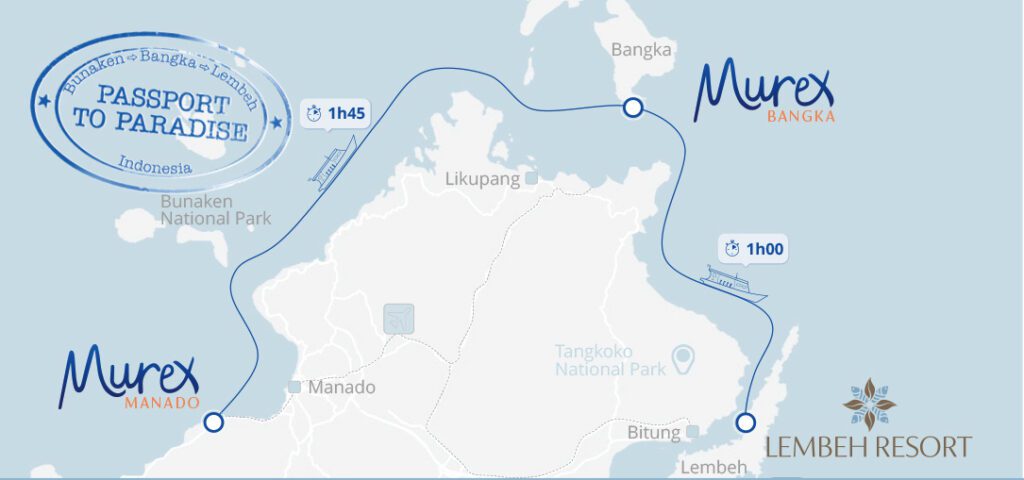
Three distinct destinations brought together by Passport to Paradise
Are you ready to book your next trip to Indonesia? Why not join us for a Passport to Paradise? Discover three distinct destinations here in North Sulawesi: Bunaken, Bangka and Lembeh, in one phenomenal trip. Dive with turtles and explore the staggering walls of the Bunaken Marine Park, dive into Bangka Islands’ kaleidoscopic soft coral reefs, and experience the world’s best muck diving in the Lembeh Strait.
Our Passport to Paradise resorts (Murex Manado, Murex Bangka and Lembeh Resort) are connected by boat diving transfers which means no wasted travel time and even more time underwater as you simply dive your way from resort to resort!
Get in Touch
Contact us at reservations@murexresorts.com. You may also want to check out Murex Resorts’ rates and reserve your spot now.
We look forward to welcoming you to North Sulawesi!
Further Reading
If you enjoyed reading this article, you may also be interested in some of our other recent posts about diving, staying, and exploring North Sulawesi:


